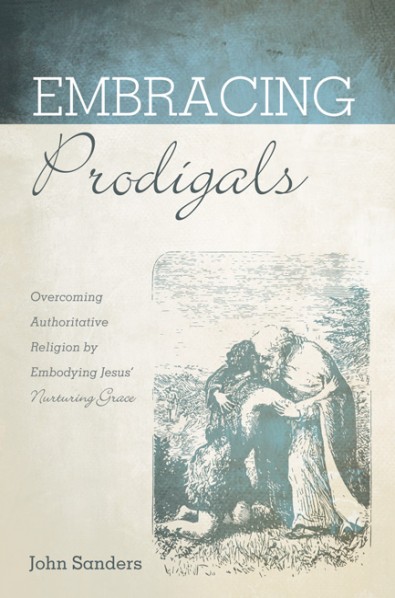CONWAY, Ark. (August
25, 2020) — In a season of polarization, Hendrix College Professor of Religious
Studies Dr. John Sanders hopes his latest book can create opportunities for
people who disagree to discuss their political and theological differences in empathetic
ways.
In Embracing Prodigals: Overcoming
Authoritative Religion by Embodying Jesus’ Nurturing Grace (Cascade Books, 2020), Sanders outlines
two cognitive models, Nurturant and Authoritative, and how they influence the
approaches people take when considering moral, ethical, theological, and
political viewpoints. While using these models from his previous scholarly work,
Theology in the Flesh (Fortress Press, 2016), Sanders wrote Embracing
Prodigals with a broader audience in mind.
“Many progressive
pe ople are trying to understand how conservative Protestants and Catholics have
the values they do and the ideas of God that they do, and some of the political
policies they do. At the same time, conservatives are trying to figure out how
progressives can have the values they have,” Sanders said. “After the 2016
election, I started to see my previous book through a new lens, and I wrote
this book because I believe it could help start more conversations. Both sets
of values, Authoritative and Nurturant, are in our congregations, and they
often talk past each other or just stop talking.”
ople are trying to understand how conservative Protestants and Catholics have
the values they do and the ideas of God that they do, and some of the political
policies they do. At the same time, conservatives are trying to figure out how
progressives can have the values they have,” Sanders said. “After the 2016
election, I started to see my previous book through a new lens, and I wrote
this book because I believe it could help start more conversations. Both sets
of values, Authoritative and Nurturant, are in our congregations, and they
often talk past each other or just stop talking.”
The book shows
why Nurturants and Authoritatives disagree about topics such as the salvation
of non-Christians, the nature of the Bible, hell, health care, and what to do
about income inequality. “For those interested in not just the religious
polarization, but political polarization, I do hope it will help people
understand one another in this election season,” he said.
Sanders envisions
small groups using Embracing Prodigals as a basis for discussion. Being
active in that setting was part of what prompted him to write it: At the United
Methodist congregation where he is a member, he has participated in discussions
surrounding human sexuality, a matter that divides the denomination along
Nurturant and Authoritative lines. “A person on one side of the issue became
frustrated trying to explain the reasons for her position so I explained them—even
though I disagreed with her position. She was quite grateful that I expounded
her view clearly and cogently,” he said.
In addition to his
goal of creating space for dialogue in a polarized time, Sanders hopes Embracing
Prodigals encourages people to practice the nurturing way of life that
Jesus did. “Jesus was empathetic and showed grace and forgiveness to others.
These should be the core ways of relating to one another in Christian
communities,” he said. “I show how various doctrines and practices in churches
either cohere with or undermine the values of Jesus. I hope this little book
can help heal some of our polarization on theological, ethical, and political
issues.”
About Hendrix College
A private liberal
arts college in Conway, Arkansas, Hendrix College consistently earns recognition
as one of the country’s leading liberal arts institutions, and is featured in Colleges That Change
Lives: 40 Schools That Will Change the Way You Think About Colleges. Its academic quality
and rigor, innovation, and value have established Hendrix as a fixture in
numerous college guides, lists, and rankings. Founded in 1876, Hendrix has been
affiliated with the United Methodist Church since 1884. To learn more, visit www.hendrix.edu.